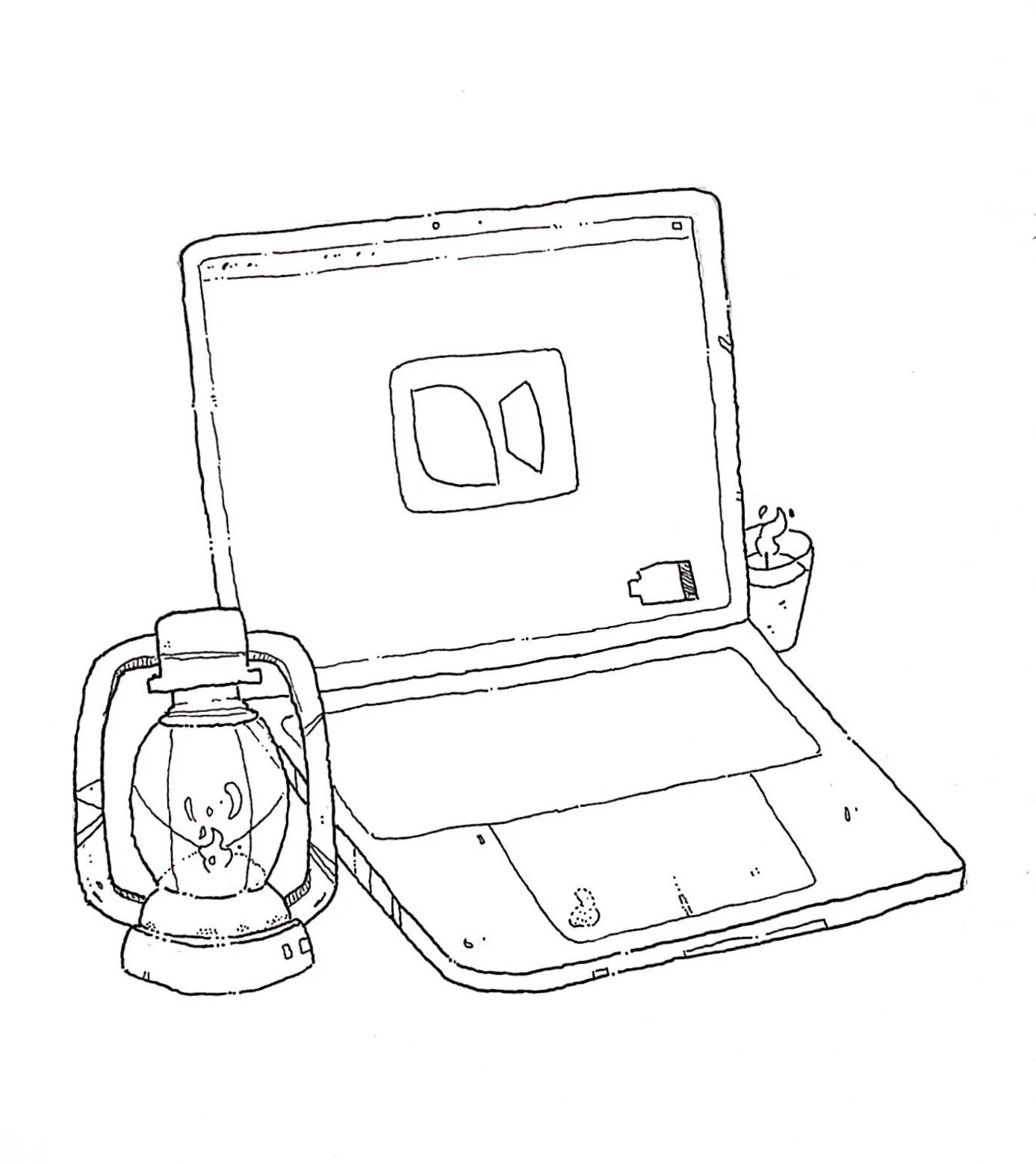Dispatches from the Dark
Challenges Faced by Off Campus Reed Community Members During Extended Power Outages
Illustration by Mychal J. Miller
Last week, Portland was hit with severe ice and snow storms that swept into the Pacific Northwest. The damage caused by the power outages was the worst ice storm experienced in 40 years. At the storm’s peak 350,000 Portland residents had lost electricity and five people died. Classes at Reed were cancelled until last Thursday and the Sports Center Roof collapsed, inhibiting Reed’s plans for continued COVID-19 testing. During the storms, the Student Body Senate called for the cancellation of classes for the remainder of the week. This would have allowed students, faculty, and staff who were affected by the power outages time to recover.
Classes have resumed and COVID-19 testing is now in the Student Union. The Quest spoke with multiple Reedies who had lost power for a few days during the ice storms and had to adapt to the situation. Each person interviewed had lost power for a few days during the ice storms and had to adapt to the situation.
CRES Research Assistant and sophomore Ocean Chamberlain was particularly unlucky, as he was without power from Friday, Feb. 12 to Thursday, Feb. 18. On Friday, he was celebrating his birthday until he lost power. The following morning his partner’s parents bought them a hotel room to stay in, but getting there was a challenge. Chamberlain and his partner weren’t able to use his car since it did not have enough traction for the snow, so they tried to call a Lyft. Chamberlain said, “we were trying to get a Lyft over to the hotel, and we couldn’t because there was no Lyft driving.” After a night in the hotel, Chamberlain and his partner secured emergency housing in Bragdon dorm. Chamberlain appreciated Senate’s attempts to cancel classes last week, as the mental stresses one experiences during a power outage are already hard enough without classes to worry about. Chamberlain said, “when you’re struggling to find heating and power and dealing with all the financial burdens that come with that, like buying your groceries again… you don’t have the mental capacity to do your reading or go to class.”
“When you’re struggling to find heating and power and dealing with all the financial burdens that come with that… you don’t have the mental capacity to do your reading or go to class.”
Assistant Professor of History and Humanities Radhika Natarajan said that the pandemic and power outages felt like “compounding crises” that contributed to an overall air of uncertainty. She had to figure out where to get electricity to charge her phone, how to communicate with her students, and what the school’s plan was for classes. For Natarajan, one respite from the stress was being able to meet with friends and colleagues over a cup of coffee made from her camping equipment. Natarajan was relieved that the college cancelled classes for three days as it alleviated the stress to contact students and make plans without electricity. For Thursday, she planned to hold optional classes to check in on her students. At the end of the interview, Natarajan emphasized that what happened was very difficult for everyone involved as students, faculty, and staff had to work with a major power outage during a pandemic.
Professor of Creative Writing Pete Rock was unable to schedule an interview; instead, he sent asynchronous reflection on his experience during the power outages, quotes are excerpts from his written response. Rock’s family had left for a hotel in Vancouver while he stayed at home, he had lost power from Monday, Feb. 15 until Thursday, Feb. 18. Rock wrote, “here I was with the animals, in our cold and dark house that smelled of rotting food. And then days later, in the middle of the night, the vacuum lunged across the floor, all the lights in the house suddenly came on, and the garbage disposal began its metallic gargling.” Rock’s classes are all online, and Google Drive and Moodle are essential resources for an always online format. The power outages prevented Rock and his students from being able to attend class or upload assignments, “I’ve not only been teaching entirely online, but all of my course material resides on the Moodle or the Google Drive. So even if my students and I could figure out how to meet, we couldn’t easily prepare ourselves.” Rock wishes he could have had that class time back, as losing almost a week’s worth of class represented a major setback.

